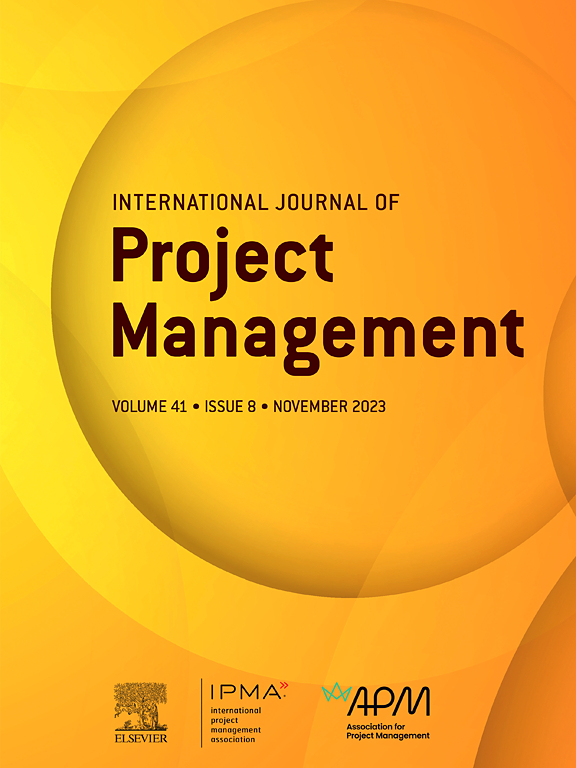公共部门战略中的项目化与治理演变——以深圳前海大型新城开发为例
IF 7.5
1区 管理学
Q1 MANAGEMENT
International Journal of Project Management
Pub Date : 2025-08-01
DOI:10.1016/j.ijproman.2025.102751
引用次数: 0
摘要
随着项目日益主导公共部门,政策和战略主要通过项目来实施。实现长期战略目标往往需要复杂的、多层次的规划,对公共部门的治理能力提出重大挑战,需要一个动态的、适应性强的治理系统。然而,现有文献缺乏对这一问题的系统研究。基于项目化研究和治理理论,本研究旨在揭示公共部门战略的项目化和治理演变及其背后的机制。我们采用了中国公共部门战略的纵向案例研究:深圳前海巨型新城发展。通过对其从概念到运行的15年演变的追踪,我们的研究结果表明,实施这种基于项目的战略涉及目标设定、制度体系发展、组织结构和项目规划与建设之间的动态互动。基于这些发现,我们开发了一个概念模型——SIOP框架(战略、制度、组织、项目),以捕捉公共部门战略的潜在演化机制。本研究通过整合治理理论和提供实证见解,为项目化研究做出了贡献,同时也为公共部门提供了实践启示。本文章由计算机程序翻译,如有差异,请以英文原文为准。
Projectification and governance evolution in public sector strategy: A case study of Shenzhen Qianhai mega new town development in China
As projectification increasingly dominates the public sector, policies and strategies are predominantly implemented through projects. Achieving long-term strategic goals often entails complex, multi-level projectification, posing significant challenges to the governance capacity of the public sector and demanding a dynamic and adaptive governance system. Yet, existing literature lacks systematic research on this issue. Building on projectification research and governance theory, this study aims to reveal the projectification and governance evolution in public sector strategies, as well as the underlying mechanisms. We employ a longitudinal case study of a Chinese public sector strategy: the Shenzhen Qianhai Mega New Town Development. Tracing its fifteen-year evolution from conception to operation, our findings demonstrate that implementing such project-based strategies involves dynamic interactions among goal setting, institutional system development, organizational structuring, and project planning and construction. Based on these findings, we develop a conceptual model—the SIOP framework (Strategy, Institution, Organization, Project)—to capture the underlying evolutionary mechanisms of public sector strategies. This study contributes to projectification research by integrating governance theory and providing empirical insights, while also offering practical implications for public sectors.
求助全文
通过发布文献求助,成功后即可免费获取论文全文。
去求助
来源期刊

International Journal of Project Management
MANAGEMENT-
CiteScore
12.30
自引率
26.20%
发文量
83
审稿时长
59 days
期刊介绍:
The International Journal of Project Management is recognized as a premier publication in the field of project management and organization studies. Our main objective is to contribute to the advancement of project management and project organizing through the publication of groundbreaking research.
We are dedicated to presenting fresh insights and new knowledge in various domains, including project management, program management, portfolio management, project-oriented organizations, project networks, and project-oriented societies. We actively encourage submissions that explore project management and organizing from the perspectives of organizational behavior, strategy, supply chain management, technology, change management, innovation, and sustainability.
By publishing high-quality research articles and reviews, we strive to revolutionize the academic landscape and propel the field of project management forward. We invite researchers, scholars, and practitioners to contribute to our journal and be a part of the progressive development in this exciting field.
 求助内容:
求助内容: 应助结果提醒方式:
应助结果提醒方式:


